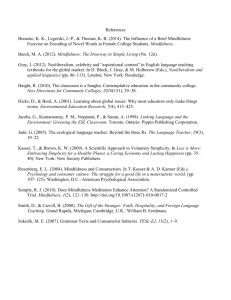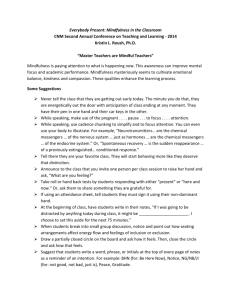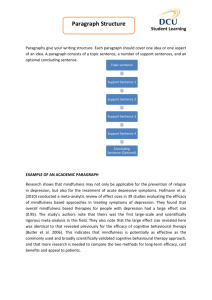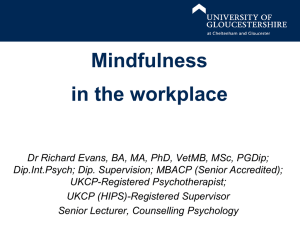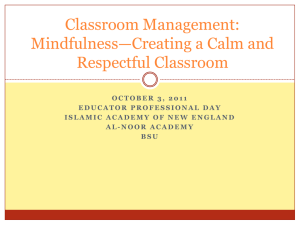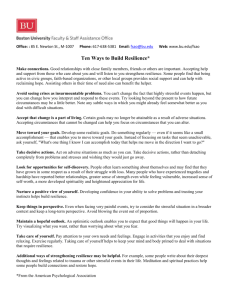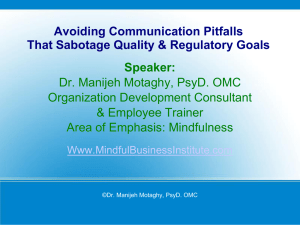How Mindfulness Training Can Improve Learning in Law School
advertisement
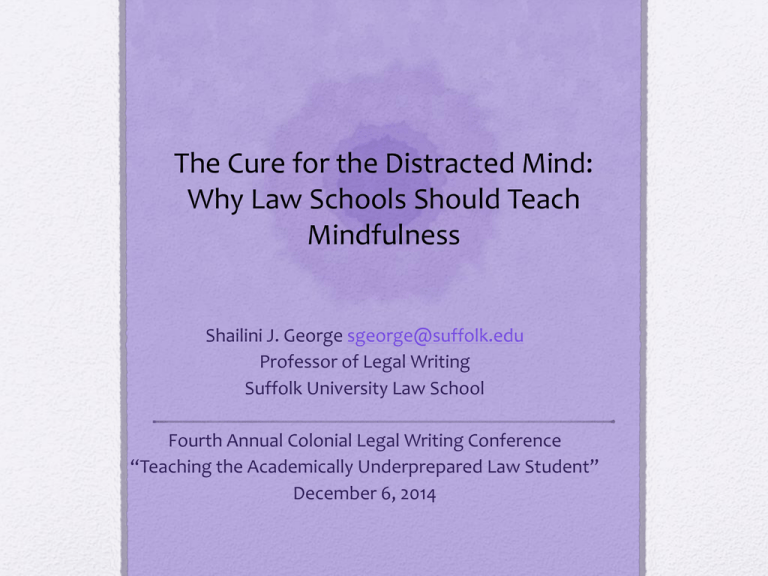
The Cure for the Distracted Mind: Why Law Schools Should Teach Mindfulness Shailini J. George sgeorge@suffolk.edu Professor of Legal Writing Suffolk University Law School Fourth Annual Colonial Legal Writing Conference “Teaching the Academically Underprepared Law Student” December 6, 2014 What is mindfulness? Today’s law students • Millennials • Digital natives • “gen M” • Google generation • FOMO generation Why mindfulness in law school? Science of Learning • Frontal lobe-brain’s manager. Used to concentrate and deeply focus. • Parietal lobe-always seeking sensory information from the environment. How do we learn? • Complex, multi-step process which requires attention Mindfulness can improve focus Benefits of mindfulness Benefits include: • Improved attention • Increased working memory capacity • Rise in academic achievement • Increased empathy and self compassion • Improved creativity • Boosted immunity • Reduction in stress and anxiety Mindfulness in the classroom • Breathing exercise • One minute journal • Discussion of metacognition Mindfulness in law schools now • Law schools have begun teaching and encouraging mindfulness • For credit/not for credit classes • Emotional intelligence • Professional responsibility • Dispute resolution • Part of clinics • Meditation retreats Mindfulness in teaching benefits learning Examples: • • • • • Journals Self-critiques Mid-term evaluations Short writing assignments Muddiest point/one-minute paper
